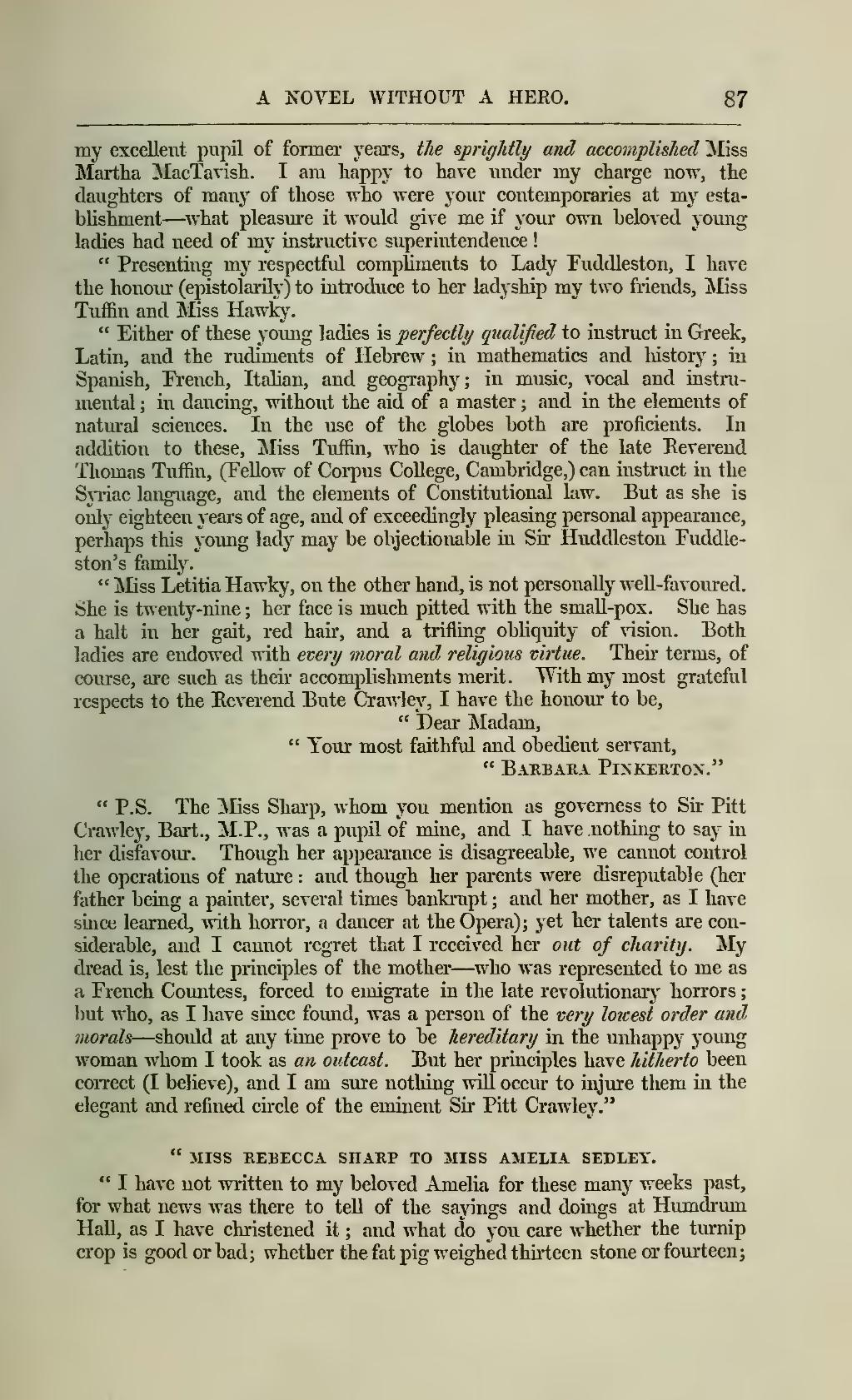my excellent pupil of former years, the sprightly and accomplished Miss Martha MacTavish. I am happy to have under my charge now, the daughters of many of those who were your contemporaries at my establishment—what pleasure it would give me if your own beloved young ladies had need of my instructive superintendence!
"Presenting my respectful compliments to Lady Fuddleston, I have the honour (epistolarily) to introduce to her ladyship my two friends, Miss Tuffin and Miss Hawky.
"Either of these young ladies is perfectly qualified to instruct in Greek, Latin, and the rudiments of Hebrew; in mathematics and history; in Spanish, French, Italian, and geography; in music, vocal and instrumental; in dancing, without the aid of a master; and in the elements of natural sciences. In the use of the globes both are proficients. In addition to these, Miss Tuffin, who is daughter of the late Reverend Thomas Tuffin, (Fellow of Corpus College, Cambridge,) can instruct in the Syriac language, and the elements of Constitutional law. But as she is only eighteen years of age, and of exceedingly pleasing personal appearance, perhaps this young lady may be objectionable in Sir Huddleston Fuddleston's family.
"Miss Letitia Hawky, on the other hand, is not personally well-favoured. She is twenty-nine; her face is much pitted with the small-pox. She has a halt in her gait, red hair, and a trifling obliquity of vision. Both ladies are endowed with every moral and religious virtue. Their terms, of course, are such as their accomplishments merit. With my most grateful respects to the Reverend Bute Crawley, I have the honour to be,
"Dear Madam,
"Your most faithful and obedient servant,
"Barbara. Pinkerton."
"P.S. The Miss Sharp, whom you mention as governess to Sir Pitt Crawley, Bart., M.P., was a pupil of mine, and I have nothing to say in her disfavour. Though her appearance is disagreeable, we cannot control the operations of nature: and though her parents were disreputable (her father being a painter, several times bankrupt; and her mother, as I have since learned, with horror, a dancer at the Opera); yet her talents are considerable, and I cannot regret that I received her out of charity. My dread is, lest the principles of the mother—who was represented to me as a French Countess, forced to emigrate in the late revolutionary horrors; but who, as I have since found, was a person of the very lowest order and morals—should at any time prove to be hereditary in the unhappy young woman whom I took as an outcast. But her principles have hitherto been correct (I believe), and I am sure nothing will occur to injure them in the elegant and refined circle of the eminent Sir Pitt Crawley."
"MISS REBECCA SHARP TO MISS AMELIA SEDLEY.
"I have not written to my beloved Amelia for these many weeks past, for what news was there to tell of the sayings and doings at Humdrum Hall, as I have christened it; and what do you care whether the turnip crop is good or bad; whether the fat pig weighed thirteen stone or fourteen;
